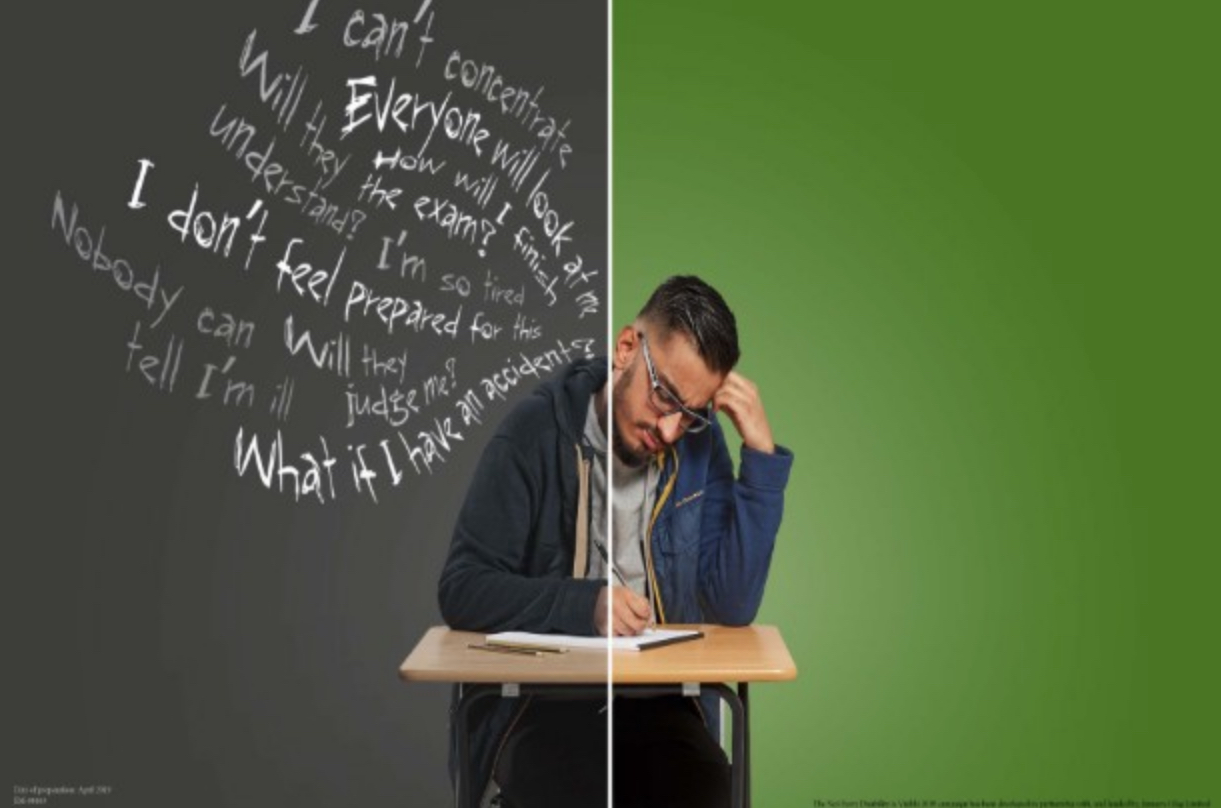Hidden and Visible Disabilities and College Services: What Students Should Know
Gallery

Chronic pain, depression, dyslexia: these are just some of the many hidden disabilities that many students must deal with on a daily basis.
The Michigan government has noted that “about 10 percent of people live with a condition which could be considered an invisible or hidden disability, which amounts to approximately 32.7 million Americans,” and “nearly half of Americans are living with a chronic medical condition, totaling 163.5 million patients.” There are two main laws that prohibit the discrimination of Americans with disabilities: The Americans with Disabilities Act (ADA), and Section 504 of the Rehabilitation Act of 1973.
ADA is comprehensive civil rights legislation that prohibits the discrimination against those with a disability. This law was modeled after the Civil Rights Act of 1964, and was signed into law by President George H.W. Bush in 1990. As stated in this law, “To be protected by the ADA, one must have a disability, which is defined by the ADA as a physical or mental impairment that substantially limits one or more major life activities, a person who has a history or record of such an impairment, or a person who is perceived by others as having such an impairment,” meaning that someone does have to have medical proof of said disability or limitation.
Section 504 of the Rehabilitation Act of 1973 protects the rights of those with visible and non-visible disabilities by assuring that “No otherwise qualified individual with handicaps in the United States…shall, solely by reason of her or his handicap, be excluded from the participation in, be denied the benefits of, or be subjected to discrimination under any program or activity receiving Federal financial assistance.” This means that if a school receives any federal funding, such as student financial aid, that they are prohibited from discrimination against students with a disability. This law applies to students who have visible and invisible disabilities.
There are many forms of hidden disabilities ranging from mental, internal, and external. Some of these hidden disabilities are visible, but have just become a social normality, like near-sightedness, a disability most often corrected with glasses. However, some disabilities are not easily corrected without surgery, medications, or can’t be corrected at all.
Henry Ford College’s Assisted Learning Center provides a variety of services to help students with disabilities. Students, however, are in charge of reaching out for the assistance, even if they received assistance in high school. The application does require students to provide proof signed off by a medical professional of the disability. Staff in the Assisted Learning Center can provide assistance in finding either a doctor or a clinic to help in getting diagnosed. After providing the proof of disability, students fill out an application, where they state what assistance they may need. The various assistance offered ranges from notifying a teacher of a student’s disability status, to special requests such as seating closer to the whiteboard, or extra time on tests. There is also assistive equipment available for students to either utilize in the Assisted Learning Center or rent out.
Prior to the pandemic, the Assisted Learning Center had regular hours. Currently, the center has reopened for students by appointment only. Located in building A in room A-125, students who feel like they may be in need of their assistance, whether they have previously been diagnosed or not, can contact the Assisted Learning Center either by email als@hfcc.edu or by phone at 313-845-9617. While the center is by appointment only, the staff work around the clock to make sure students receive the help they need.
However, even though the college makes sure to provide assistance for those with a disability, the needs of students with disabilities require ongoing attention. Some of the buildings that make up the college’s main campus in Dearborn were built prior to the ADA and Section 504, which means that they were not built with disabilities in mind. While all buildings have since been made handicap accessible with ramps and automatic doors and elevators, the access in specific situations can pose challenges. Andrew Bedard, a student at HFC who uses a wheelchair states, “Handicap accessibility is terrible, including at this school. I hit a handicap button to open a door, and nothing happens. Sometimes I roll into the handicap stall with my wheelchair, and you can’t even shut the door, it’s too small. The ramps have potholes, and some are too steep. There are a bunch of problems. It’s like this everywhere.”
Students who need help with access to any of the physical locations on campus, including buildings, are told to contact the office of Campus Safety at 313-845-9630 for immediate assistance. Online accessibility issues can be addressed by contacting Information Technology Services help desk: helpdesk@hfcc.edu, or to call 313-845-6345. To address complaints or needs of students with disabilities, the college provides a complaint process. Complaints can be sent using the online form at: my.hfcc.edu/forms/accessibility-complaint.
